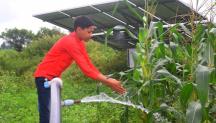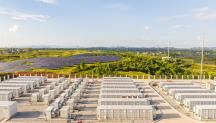

IRENA’s 13th Council Convenes
Newsletter
Agency’s governing body discusses the next steps towards a sustainable future
“We are in the midst of a major energy transition and renewables are at the centre stage of it, experiencing continuous growth and development in more and more countries around the world,” announced IRENA Director-General Adnan Z. Amin at the opening of the 13th IRENA Council.
Convening from 23 to 24 May, with a preparatory day on 22 May and a Policy Day on 25 May, the 13th Council attracted the registration of over 300 delegates representing 110 countries — the highest participation ever at an IRENA Council.
“This [energy] transition has multiple socio-economic benefits in terms of fueling economic growth, creating jobs and improving human welfare and the environment. We look forward to working closely with our Members and stakeholders to further accelerate the global energy transition through strengthened international cooperation and innovative partnerships,” the Director-General added.
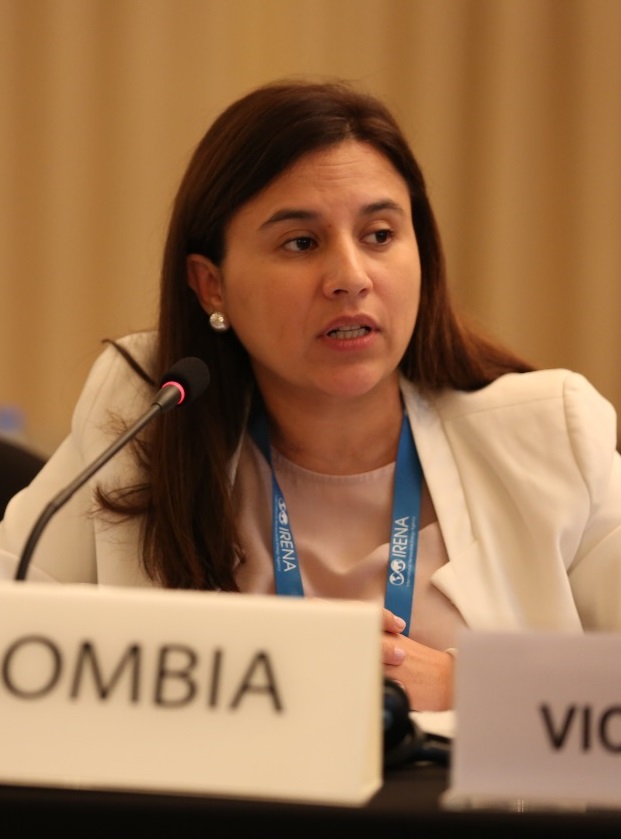
“IRENA reports help us adapt our education curriculums and prepare for the energy transformation.” — Rutty Paola Ortiz Jara, Vice-Chair of the Council and Deputy Minister of Colombia’s Ministry of Mines and Energy.
One of IRENA’s two governing bodies, the Council brings together a rotating group of 21 countries to discuss IRENA’s work and to propose issues for IRENA’s Assembly — the agency’s other, larger governing body.
Convening just twice a year, this Council’s discussion focused on reviewing the progress completed to date under IRENA’s current work programme, and preliminary planning for the Agency’s future work.
The plenary’s thematic sessions covered decarbonising the energy sector with renewables to meet the targets of the Paris Agreement, renewable energy jobs, and market design for increasing renewable energy capacity.
Driving jobs and sustainable growth
Mr Li Fanrong, Deputy Administrator of the National Energy Administration of China, was elected Chair of the Council and Rutty Paola Ortiz Jara, Deputy Minister of Colombia’s Ministry of Mines and Energy, Vice-chair.
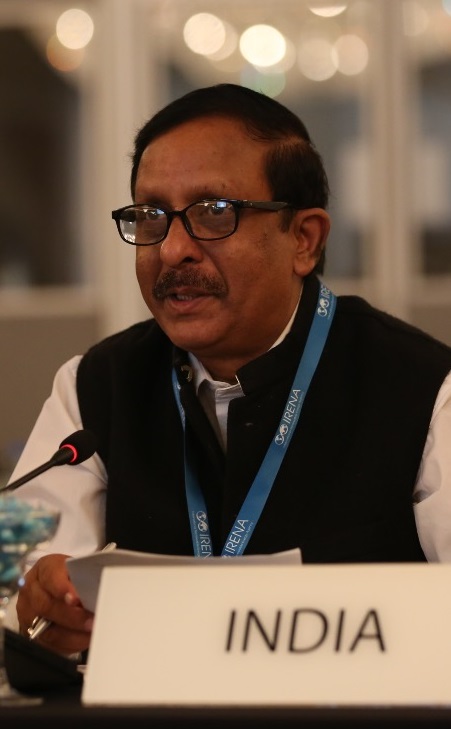
“It’s vital to develop a total energy solution for rural areas, not just lighting and electricity.” — Dilip Kumar Khare, Director of India's Ministry of New and Renewable Energy
“In our efforts to meet growing energy demand with cleaner, low-carbon and sustainable sources of energy sources, China has become one of the fast-growing renewable energy markets in the world. It has now become evident in China that renewables can not only contribute to the on-going energy transition, but also drive sustainable economic growth,” said Mr. Li.
“China is open to cooperating with all countries across the globe on renewable energy development and deployment, and honored to be part of the IRENA’s invaluable efforts at the centre of international cooperation for greater renewable energy deployment,” Mr. Li added.
The Council was also the stage for the release of Renewable Energy and Jobs — Annual Review 2017, IRENA’s report on the state of global renewable energy employment. The report finds that renewable energy employed 9.8 million people around the world in 2016 — a 1.1% increase over 2015 — with solar PV being the largest employing technology (3.1 million jobs).
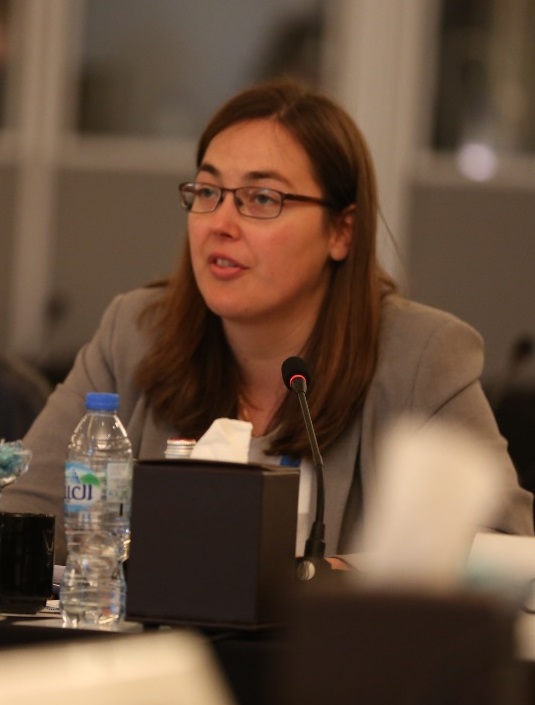
"Women and girls can be important game-changers in the energy sector." — Bilun Müller, Senior Official at Germany's Federal Ministry for Economic Affairs and Energy
Outside of the Council’s plenary, events pertaining to IRENA’s work provided participants an opportunity to gain a better understanding about specific IRENA projects and initiatives, ask questions, and engage with IRENA staff.
A battery storage event highlighted the technology’s increasing larger-scale deployment, and that as prices for battery storage drop, the energy transition will accelerate. An event on the IRENA/ADFD Project Facility, described the renewable energy project development fund’s closer collaboration with IRENA’s Project Navigator online platform, to ensure more bankable and technically feasible projects.
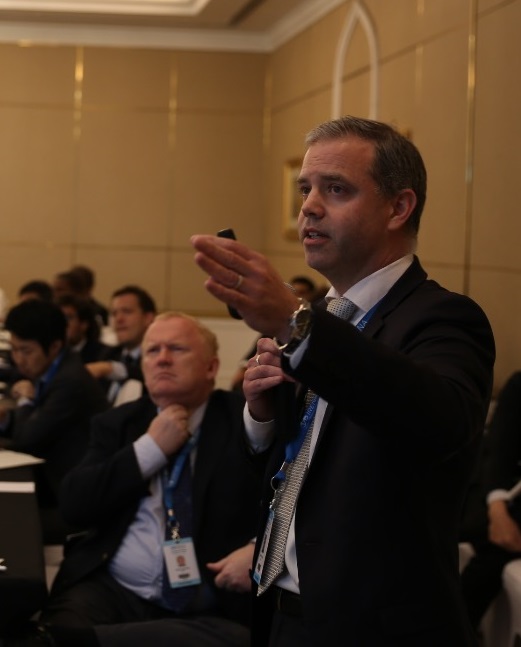
"Falling battery electricity storage costs will help accelerate the energy transition, and its disruptive nature." — Michael Taylor, IRENA Senior Analyst
Policy Day, held the day after the Council at IRENA Headquarters was a forum for a renewable energy policy dialogue. Countries and experts shared experiences and best practices in policy-making for efficiently deploying renewable energy and maximizing benefits. The day provided key input to support IRENA’s Work Programme and was a chance for policy makers and experts to engage in a discussion on key findings stemming from IRENA’s recent work on policy assessments and socio-economic benefits of renewable energy
This year’s Council members, as decided by the January’s 7th Assembly, are Argentina, the Bahamas, Belgium, Burkina Faso, China, Colombia, Egypt, Germany, Ghana, India, Japan, Norway, the Republic of Korea, the Russian Federation, Samoa, Sudan, Turkey, the United Arab Emirates, the United Kingdom of Great Britain and Northern Ireland, the United States of America, and Zimbabwe, with Bangladesh, Cyprus, the Dominican Republic, France, Kenya, Malaysia, Panama, the Philippines, Spain and Uruguay acting as alternate Council members.
For more about the 13th Council, view the opening press release, check out its Twitter hashtag (#IRENAcouncil), or visit IRENA’s Flickr album for pictures.
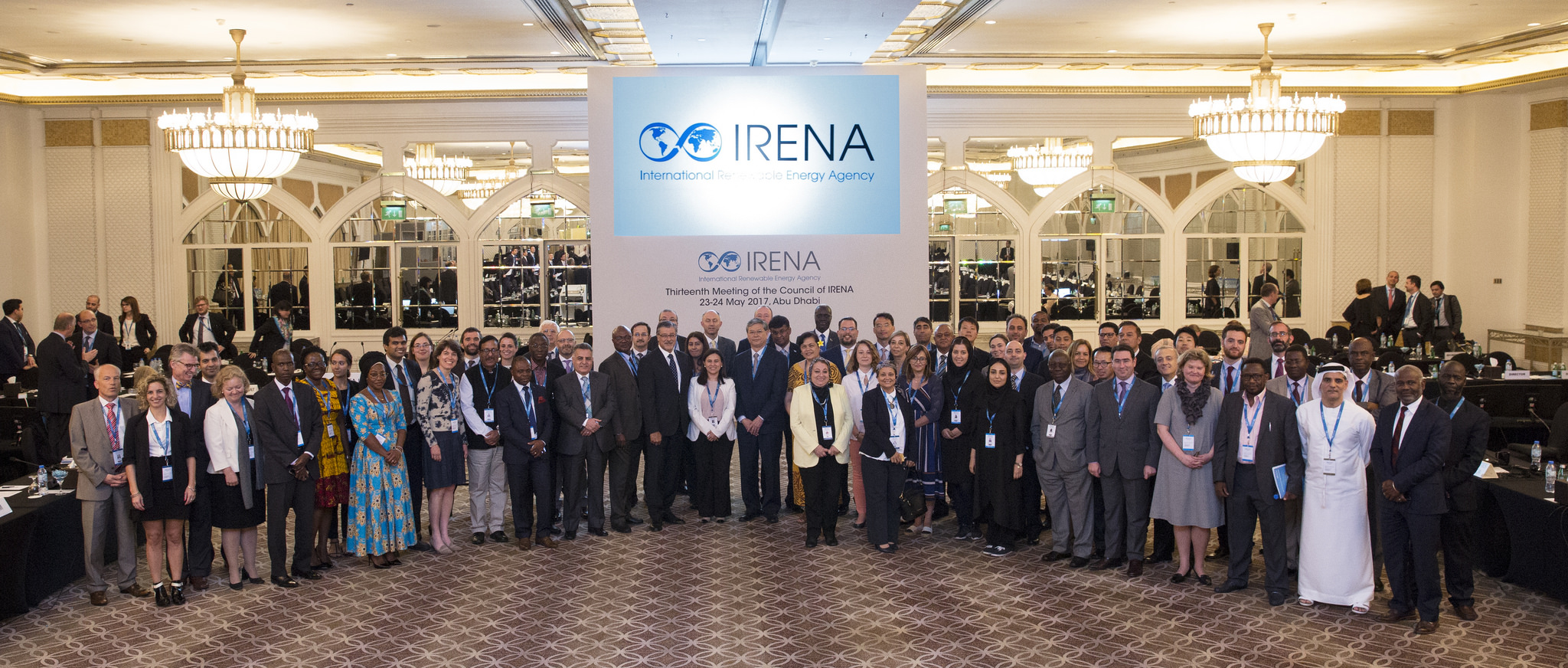
Over 300 delegates representing 110 countries, attended IRENA's 13th Council in Abu Dhabi, United Arab Emirates, 23-24 May 2017.



